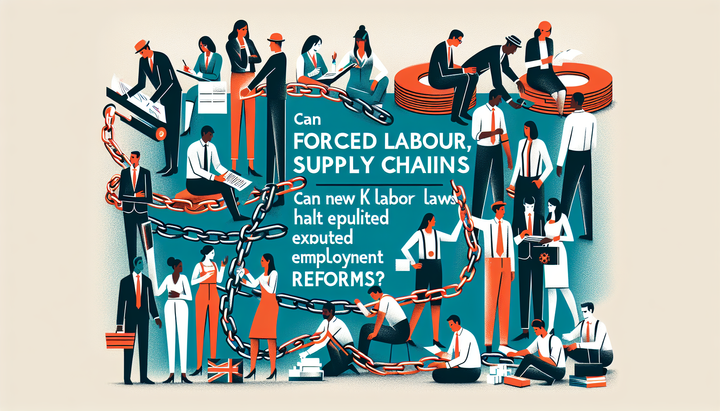Advance Commissions: Hidden Costs in Car Finance?

Introduction: The Hidden Price Tag in Car Finance
The automotive finance industry is under scrutiny as recent legal filings reveal that advance commissions paid by lenders to car dealerships may be artificially inflating car loan costs for consumers. This article explores the controversial practice that involves upfront cash payments, the resulting conflicts of interest, and the broader implications for the industry and the global economy.
Understanding Advance Commissions
Advance commissions refer to lump-sum payments made by lenders to car dealerships for securing loan agreements. These payments are provided in advance, even before the dealership has delivered the full complement of loan contracts. Often undisclosed to consumers, these practices can create incentives for dealerships to favor specific lenders, potentially leading customers to costlier loan products.
Key aspects include:
- Nature of the Payment: Lump-sum payments made upfront, intended as a cash flow management tool.
- Conflict of Interest: Sales and finance teams may push loans from providers offering higher commissions, regardless of the consumer’s best interest.
- Hidden Costs: The true cost of financing might be obscured, leading to less competitive loan offers for consumers.
The Impact on Consumers and Dealerships
When advance commissions are factored into the decision-making process, there is potential for significant adverse effects on both consumers and car dealerships. For dealerships, failing to meet certain sales targets might result in negative financial consequences, such as reduced profitability or strained relationships with their lending partners.
For consumers, the practice has critical implications:
- Consumers may unwittingly secure loans that are costlier over the long term.
- The lack of transparency regarding commission payments creates an uneven playing field.
- Lenders are forced to set aside millions for potential payouts, which can indirectly affect loan terms and interest rates.
Regulatory Landscape and Legal Perspectives
Regulators such as the Financial Conduct Authority (FCA) have been investigating various motor finance commission arrangements for years. Recent court judgments have questioned the legality of undisclosed or secretive commission payments. One such ruling deemed the practice of paying undisclosed advance commissions to be unlawful.
Legal filings have also revealed that major banks like Lloyds Banking Group and Santander UK have engaged in this practice. Although some lenders have revised disclosure standards following regulatory scrutiny, the issue remains a contentious point in ongoing legal battles, including a pending supreme court case focused on defining the scope of compensation for affected consumers.
Industry Reaction and Economic Implications
Industry stakeholders are divided over the practice. On one side, some automotive finance executives argue that advance commissions are simply a tool for effective cash flow management. On the other side, consumer advocacy groups, along with former industry insiders, assert that these arrangements encourage a conflict of interest that ultimately harms customers.
The economic implications extend beyond individual loans. For instance, some analysts have estimated that the fallout from the current car finance scandal could cost lenders up to £44bn collectively, nearly rivaling previous financial scandals such as the Payment Protection Insurance (PPI) saga.
Historical Context and Similar Cases
This controversy is not entirely new. The car finance sector has a complicated history with commission schemes. For example, before closing its motor finance division in 2019, Barclays was known to offer advance commission arrangements. In more recent years, consumer groups have repeatedly raised concerns regarding the ethics and transparency of such financial practices.
A brief timeline of key events includes:
- Pre-2019: Several car loan providers, including Barclays, routinely used advance commission schemes.
- 2019 Onwards: Regulatory bodies and consumer advocates increasingly scrutinize these practices.
- Recent Legal Filings: Court documents reveal that billions of pounds in potential payouts have been earmarked for compensation related to these practices.
Global Market Trends and the Role of Fintech
The issues with advance commissions in car finance also tie into broader global market trends. As digital transformation accelerates within the financial sector, fintech companies are challenging traditional lending models by advocating for greater transparency and consumer protection.
Some key trends include:
- Increased Regulation: Financial regulators worldwide are tightening disclosure rules, particularly for commission-based financial products.
- Shift in Consumer Preferences: Modern consumers demand clarity and fairness in loan agreements, pushing firms toward more transparent practices.
- Fintech Disruptions: New market entrants are leveraging technology and data analytics to offer more competitive, transparent loan products.
Corporate Strategies in Addressing Conflicts of Interest
In response to negative publicity and increasing regulatory scrutiny, many lenders have begun overhauling their commission structures. Corporate strategies focus on reducing conflicts of interest through:
- Enhancing transparency in loan origination processes.
- Providing clear disclosures about commission structures to both dealers and consumers.
- Implementing compliance measures to ensure fair competition among dealerships and lending partners.
These reforms are not only aimed at mitigating legal risks but also at restoring consumer trust in the car finance industry.
Case Studies and Real-World Impacts
Let’s consider a few case studies that illustrate the real-world impacts of advance commission practices:
Case Study 1: The Santander UK Experience
A spokesperson for Santander UK outlined how the lender has since adjusted its commission disclosure policies following a court ruling. The improved transparency has helped customers make better-informed financing decisions, although skeptics argue that the legacy of undisclosed payments still lingers.
Case Study 2: Lloyds Banking Group’s Financial Adjustments
Lloyds Banking Group was forced to put aside hundreds of millions for potential payouts related to the scandal. This financial prudence reflects an acknowledgment of the long-term risks associated with unclear commission practices and underscores the need for industry-wide reform.
Risks for Investors and Market Players
The controversies surrounding advance commissions carry significant implications for investors and market players within the automotive finance sector. Potential risks include:
- Regulatory Risk: Increased scrutiny can lead to regulatory fines and more stringent oversight, affecting profitability.
- Reputational Risk: Persistent negative publicity may deter new customers and shift market sentiment.
- Financial Risk: Reserve funds set aside for potential payouts could impact future investment schemes, influencing broader market trends.
Inflation, Market Volatility, and Shifting Economic Landscapes
In the current global economic climate characterized by fluctuating interest rates, inflation, and stock market volatility, any practice that adds hidden costs to loans becomes a critical factor. Consumers, already grappling with economic uncertainties, may find it increasingly challenging to secure affordable financing.
Moreover, market volatility means that even slight changes in lending practices can have amplified effects on both individual and corporate financial health. The automotive finance sector, traditionally seen as stable, is now navigating through these turbulent times and reassessing its strategies in light of potential regulatory and market shifts.
Expert Insights and Future Outlook
Industry experts have offered a range of opinions regarding the future of commission practices in automotive finance. While some predict that tighter regulatory norms will force all players to increase transparency, others believe that new business models driven by digital technologies could render traditional commission schemes obsolete.
Key takeaways include:
- Increased Transparency: Future reforms are likely to mandate clear disclosures, reducing the likelihood of hidden costs.
- Technological Disruption: Fintech innovations may offer alternative financing solutions that are both competitive and transparent.
- Market Adaptation: Established lenders may need to revamp their business strategies to cope with regulatory changes and shifting consumer demands.
How Businesses Can Adapt
For dealerships, lenders, and investors alike, adapting to the evolving landscape requires a proactive approach. Here are several strategies businesses can adopt:
- Review Existing Practices: Conduct internal audits to ensure that all commission structures comply with current regulations.
- Enhance Consumer Education: Provide detailed, accessible information about financing options and associated costs.
- Invest in Technology: Utilize data analytics and digital platforms to streamline loan origination processes and reduce reliance on opaque commission schemes.
- Engage with Regulators: Stay informed of regulatory changes and actively participate in industry discussions to shape future policies.
Conclusion: A Call for Transparency and Reform
The unfolding controversy around advance commissions in car finance highlights the need for greater transparency and regulatory oversight. As lenders continue to navigate evolving market conditions, consumers and investors must remain vigilant of hidden costs that could affect their financial well-being. With detailed disclosures and innovative financing models on the horizon, the industry is poised for significant transformation. Whether through reform or disruption, the ultimate goal remains clear: to foster a fairer, more transparent market where financial decisions are based on informed choices rather than undisclosed incentives.
This comprehensive examination of advance commission practices not only sheds light on the current challenges facing the automotive finance sector but also provides actionable insights for businesses, investors, and regulators seeking to adapt in an increasingly complex economic landscape.
As the debate continues and legal cases unfold, both industry insiders and market observers agree on one point: transparency is the cornerstone of a robust and sustainable finance ecosystem. Stakeholders must work together to ensure that consumer protection remains at the forefront of financial innovation and regulatory practices.
By addressing these hidden costs head-on, the automotive finance industry can not only rebuild trust but also pave the way for a more efficient and equitable market. The future of car loans depends on the timely implementation of reforms that prioritize fairness, transparency, and accountability.



Comments ()